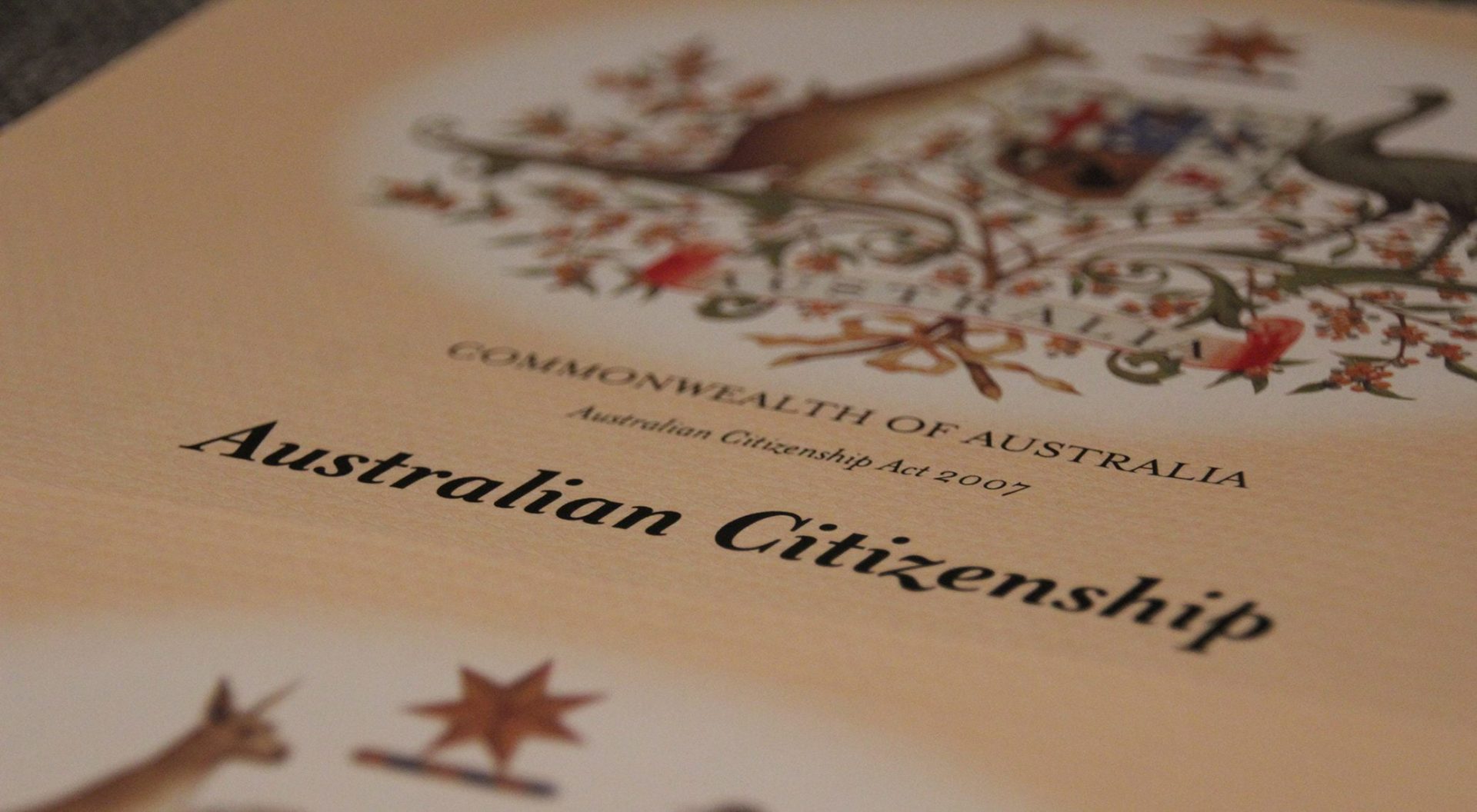
Four Steps to Australian Citizenship
Australian Citizenship
Four Steps to becoming an Australian Citizen
When a person becomes a citizen, they are able to enjoy all the rights, privileges and protections that are conferred to all Australians. In most instances, being born in Australia automatically grants Australian citizenship. Otherwise, you are required to fulfil various obligations in order to be eligible to gain Australian citizenship. Individuals who are permanent residents and can meet the general criteria can become Australian Citizens. If you were born overseas, but one of your parents was an Australian Citizen or permanent resident at the time you were born, you may also be eligible for Australian Citizenship.
Step 1: Who can apply to become an Australian citizen? How to meet the General Eligibility Requirement
Anyone who is a permanent resident, such as spouse or partner of an Australian, child of a former citizen, and eligible migrants or refugees can make an application to gain Australian citizenship. However, permanent residents should be aware that although they may be allowed to vote in local government elections in some Australian states and serve in the Australian armed forces, this still does not confer automatic citizenship rights, and they must still undergo the citizenship application process.
Step 2: The good character requirements to become an Australian Citizen
The initial prerequisite that most applicants need to fulfil when attempting to gain citizenship is that they must demonstrate that they are of good character. In order for a person to prove that they are of good character, a penal clearance certificate is required if the applicant has spent a significant amount of time overseas, while also holding a permanent resident visa.
All applicants must inform the Department of Home Affairs (the Department) of any findings of guilt in a court of law which has resulted in either a term of imprisonment, a good behaviour bond or a fine as modes of punishment.
Furthermore, a person who has been convicted of more serious offences might face difficulties in gaining citizenship if:
- they have been imprisoned in Australia, or have proceedings against them pending
- they have been released from a term of imprisonment less than two years after committing a serious offence, or 10 years after their last criminal offence if they were a repeat offender
- they are subject to certain conditions imposed by an Australian court, such as a good behaviour bond, or parole
- they have been admitted into a psychiatric facility in connection for a serious offence committed in Australia.
If you have incurred several minor offences, such as a series of traffic offences, you may be deemed a person who is not of good character, even if you do not have any criminal record against you. This is a grey area and it is the discretion of the assessing case officer whether you can demonstrate that you are a person of good character or not
If you have doubts about your circumstances, you should consult an immigration lawyer to understand your chances of a successful Australian Citizenship Application. The Department will check your criminal history thoroughly before inviting you to attend a Citizenship Test and Interview.
Step 3: The Australian citizenship test
A further condition applicants must meet in order to gain citizenship is to successfully pass the citizenship test, which is conducted to ensure that all applicants have a basic grasp of English, as well an understanding of the customs of Australia. The citizenship test consists of 20 questions taken from the official guide, Becoming an Australian Citizen which is published by the Department, and an applicant receives a passing grade if they are able to answer 15 of the 20 questions correctly.
You do not need to pass a separate English test to become an Australian Citizen, however, the Australian Citizenship test is conducted in English.
Step 4: Taking the Oath or Affirmation at an Australian Citizenship Ceremony
Before you legally become an Australian Citizen, you must obtain an invitation to attend the Australian Citizenship Ceremony. This is where you publicly vow to the Australian people and Government that you place your allegiance with Australia. You must attend the ceremony either take the Oath or Affirmation.
After that time, you will usually be given your Australian Citizenship Certificate and you can then formally be recognised as an Australian Citizen!
Contact your immigration lawyer immediately if you have any problems with getting your Australian Citizenship
The next steps are to ensure that you have carefully put forward the best possible Australian Citizenship Application. Everyone’s circumstances are different. You may have been living in Australia all your life but still be considered a foreign national. Many people are caught out this way.
If you are in doubt about whether you are an Australian Citizen, speak to one of our lawyers today.
Craddock Murray Neumann Lawyers have more than 30 years’ experience in applying for protection, refugee and humanitarian visas on behalf of asylum seekers and refugees. We have extensive knowledge and professional immigration lawyers who can assist your family in coming to Australia and assist with putting forward the best possible Australian Citizenship application forward.
This page provides a summary of immigration law as at September 2021. Australian immigration law is complex and changes frequently. We therefore recommend to schedule a consultation with one of our experienced immigration lawyers.
Related Article: Applying for Australian Citizenship – The Process and Pitfalls
Consult a CMN immigration lawyer to understand and fulfil the criteria for a successful Australian Citizenship Application.
